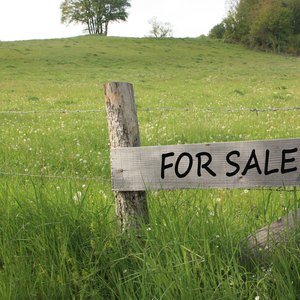
Is land a current asset? No, it’s not. As the Tennessee Board of Regents explains, land falls under the fixed assets category, which include property, plant and equipment. Such a property is also considered part of tangible assets because they have a physical presence. Fixed assets are usually meant for long-term use and are not easily converted into cash or a cash equivalent, like marketable securities.
On the other hand, properties like copyright are intangible assets under the fixed assets category. Just like land, they have an economic value and can be used for business operations beyond the short-term even though they have no physical substance.
Generally, it is important to consider what effect the cash purchase of long-term investments, like land, has when you're working out your accounting ledger because it can affect your cash flow. Long-term assets of such nature tend to have low liquidity and will affect your books or financial statements for the entire duration that you own them.
Therefore, if you're purchasing real estate investments with cash, you may specifically be interested to know about the ways your action can impact shareholders’ equity (also known as owner’s equity) and ultimately, the financial position of a big or small business.
To get a simplified answer, you must ask one pivotal question: Is land an asset or equity? Take a look at the basics of accounting and how purchasing land for cash impacts owner equity.
Is Land an Asset or Equity on a Ledger?
An asset exchange transaction is an exchange where one asset is exchanged for another. So, when you purchase land for cash, you're actually participating in an asset exchange transaction.
In the case of land for cash, you're providing the full cash asking price based on valuation for a parcel in exchange for full and immediate ownership of the parcel. As a result, the total assets listed actually remain the same following the conclusion of the transaction.
While cash is considered a liquid asset that gets categorized as a "current" asset, land is considered a "long-term" asset. This slight nuance in categorization doesn't impact the relationship between the two financial assets in terms of how they're treated on a ledger.
Does Land Purchase Impact Equity?
Paying full cash for land is really a "swap" of one asset for another asset of equal market value. Due to the fact that the cash and the land have interchangeable values in this scenario, there is no net effect on the ledger.
If you're curious about the order in which current assets are listed on a balance sheet, it's helpful to know that total assets are typically placed in the first section of a company's balance sheet. It’s also worth noting that the balance sheet includes liabilities and owner’s equity.
Managing Accounting With Cash for Land
Generally, you're looking at an even value swap when paying cash for land. This means that a company maintains a steady balance sheet with no change in relation to the exchange of cash for land. However, changes in the value of the land over time can create the need for adjustment.
As a rule, land is one of those types of assets that does not undergo depreciation in value, notes the Federal Reserve. That means that a company will maintain the historical value of the cash price for the land for the entire useful life of the land during which it stays under the company's ownership.
In some cases, it's necessary to go back to revalue a parcel of land in the event that its value sees a significant change. While rare, this does sometimes happen due to wild fluctuations in a particular real estate market. In other cases, instead of depreciation, depletion is done if value-adding features are removed from a property after the point of purchase.
Does Buying Land With a Loan Impact Owner’s Equity?
The short answer is that it doesn’t impact equity. The reason for this is that the debt incurred through the purchase of the land is balanced out by the acquisition of the land on the ledger. Like a cash purchase, this is a "swap" transaction.
This "balancing act" remains consistent throughout the life of the loan because the company owns more of the land while the lenders own less, as the company's cash decreases with each payment. This creates a consistent scenario where cash out versus the value coming in results in both getting canceled out.
References
Writer Bio
Adam Luehrs is a writer during the day and a voracious reader at night. He focuses mostly on finance writing and has a passion for real estate, credit card deals, and investing.

